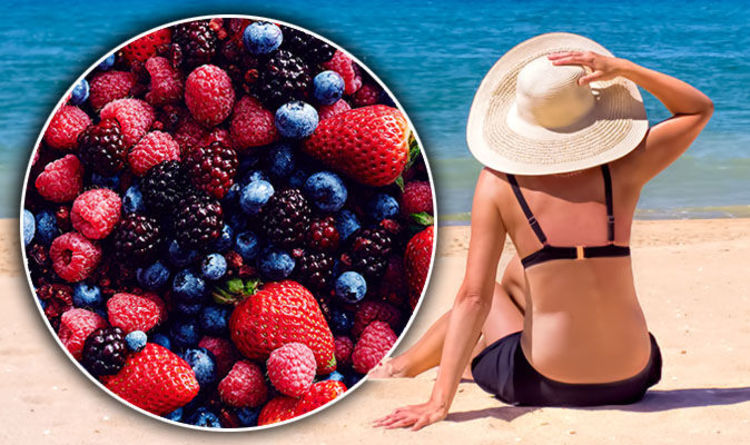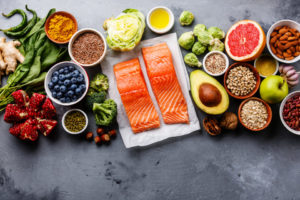People who ate the most whole-food sources—rather than supplements—of this important vitamin cut their chances of the disease.
- According to a new study in the journal JAMA Dermatology, eating foods rich in vitamin A can help prevent a type of nonmelanoma skin cancer called squamous cell carcinoma.
- Participants in the study who consumed the highest amounts of vitamin A from whole foods (as opposed to supplements) had a 15 percent lower risk of developing squamous cell carcinoma.
While putting on sunscreen is key when it comes to preventing skin cancer, new research shows that what you eat could play a role, too.
In the study, published in the journal JAMA Dermatology, researchers used data from the Nurses’ Health Study (1984 to 2012) and the Health Professionals Follow-Up Study (1986 to 2012). In total, there were 123,570 people with an average age in their early 50s.
Both the Nurses’ Health Study (NHS) and Health Professionals Follow-Up Study (HPFS) had participants fill out food questionnaires every four years that asked about which types of nutrients—from whole foods and supplements—they were consuming and how often.
Here’s what the researchers found: During a 26-year followup period for the NHS and a 28-year followup period for the HPFS, those who consumed the highest amount of vitamin A in their diets had a 15 percent lower risk of developing squamous cell carcinoma—a type of skin cancer—than those who consumed the least.
Squamous cell carcinoma is a nonmelanoma skin cancer that can destroy nearby healthy tissue, though it is much less likely to spread than melanoma. Squamous cell skin cancer often grows on sun-exposed areas, and can appear as a firm red nodule, a flat sore with a scaly crust, or a new sore or a newly raised portion of an old scar or sore. It is the second most common type of skin cancer among people with fair skin, said study coauthor Eunyoung Cho, Sc.D., associate professor and director of research at Brown University’s Department of Dermatology.
So why might vitamin A be protective? According to Cho, vitamin A is essential for the healthy growth and maturation of skin cells. This is because retinoids—compounds found in vitamin A—are essential for making sure your cells develop normally, which can prevent cancerous cells from multiplying and tumors from forming.
It’s worth noting that most of the participants’ vitamin A intake came from foods as opposed to supplements—and the sources could be plant- or animal-based, Cho said.
According to the National Institutes of Health (NIH), adult men should get 900 micrograms (mcg) of vitamin A per day and adult women should get 700 mcg. Foods like sweet potatoes, carrots, beef liver, spinach, red peppers, and cantaloupe are all good sources of the nutrient. For instance, one sweet potato contains 1,403 mcg of vitamin A—more than the recommended daily allowance—and a half cup of spinach contains 573 mcg of vitamin A.
Vitamin A is a fat-soluble, which means it’s best to pair vitamin A-rich foods with foods higher in fat because your body will better absorb the nutrient that way.

Although the average age of the participants in this study were in their 50s, Cho said the results don’t just apply to a middle-aged population.
[Build a killer midsection in the kitchen for effortless miles on the road with Eat for Abs!]
“Squamous cell carcinoma is a disease of older age,” she says. “However, cancer development takes long time. Therefore, the message is relevant to younger people—it will be good for them to adopt healthy dietary habits of lots of fruits and vegetables with high vitamin A.”
The bottom line? In addition to making sure you remember to apply sunscreen regularly before going outside, including foods that are rich in vitamin A in your diet can also help prevent against skin cancer.
A true love for sports







Recent Comments